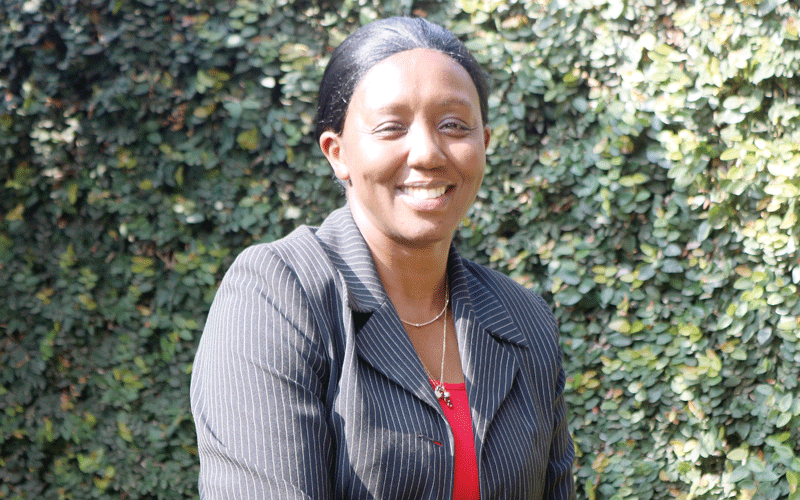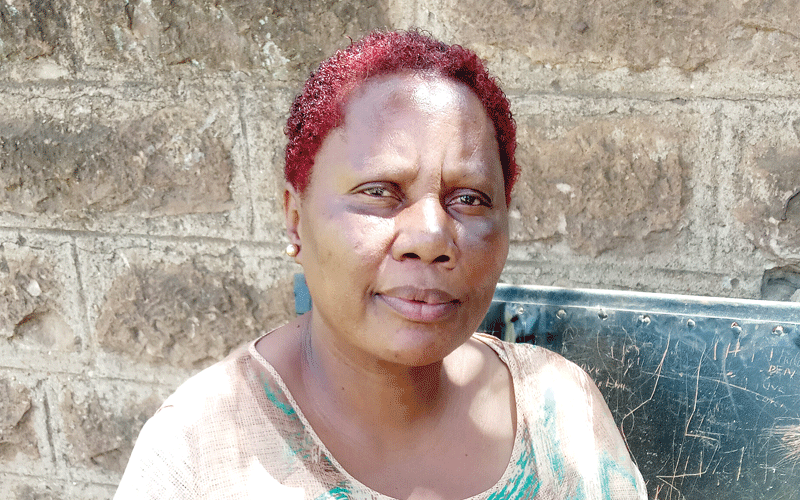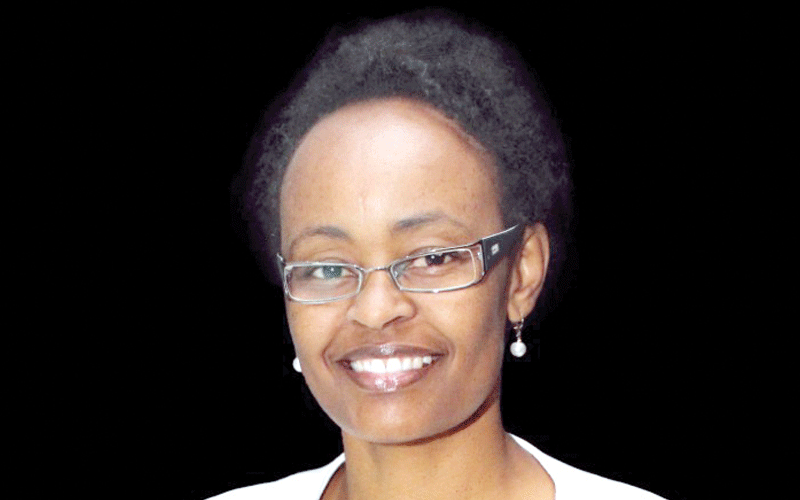Myths, burden and stigma associated with dementia

Faith Kyoumukama
What would you do if one of your parents woke up one morning and couldn’t remember your name or your existence?
That’s exactly what happened to chief executive and founder of Alzheimer’s & Dementia Organisation Kenya (Adok) Elizabeth Mutunga 17 years ago.
Her late father was a senior officer commanding a station in 1985 when he developed complications and went into a diabetic coma.
“He ended up getting retrenched on health grounds. Of course, this meant shock and financial strain, meaning we had to move houses,” Elizabeth narrates.
What was alarming to Elizabeth and her family was how her father turned aggressive and easily agitated towards them—traits he had never displayed before.
“The man, who was always neat and social and who we knew growing up, had become totally different, even in dressing. Sometimes, he hid money at night, forgot where he put it and called us thieves the next day,” she remembers.
After high school, Elizabeth was forced to work to help pay her siblings school fees and hospital bills. All this time, they did not know what exactly was going on with their father.
“Fifteen years later in 2007, we got a proper diagnosis. He was suffering from dementia.
I went to the university, studied psychology and learned about dementia and Alzheimer’s in depth. He died two years later not because of dementia, but because of health complications that come along with it,”says Elizabeth.

Dr Muthoni Gichu, Head of Division of Geriatric Medicine, Ministry of Health, describes dementia as a collection of symptoms caused by disorders affecting the brain—it is not one specific disease.
“Dementia affects thinking, behaviour and the ability to perform everyday tasks. Brain function is affected enough to interfere with the person’s normal social or working life. Dementia has an unknown cause, in some genetic predisposition, especially for Alzheimer’s is a risk factor,” she explains.
Dr Gichu adds that Alzheimer’s is a type of dementia. Others include, vascular dementia, which affects reasoning, planning, judgment, memory and other thought processes caused by brain damage.
Mixed dementia is where changes representing more than one type of dementia occur simultaneously in the brain while frontotemporal dementia affects the front and sides of the brain and interferes with behaviour and language.
The other forms of dimentia include Lewy body dementia, which generally affects the brain and Parkinson’s dementia, which is linked to people with Parkinson’s disease.
The others are posterior cortical atrophy, which ravages the outer layer of the brain and alcohol-related dementia and HIV-related dementia.
“Alzheimer’s disease is the most common form of dementia, accounting for 50 per cent to 70 per cent of all cases of dementia. Signs and symptoms include memory problems/loss, confusion, personality change, apathy and withdrawal as well as loss of the ability to do everyday tasks,” she adds.
After the loss of her father, Elizabeth went through mourning and did not hear anything about dementia at first, but she needed a support group where she could at least share her experience. However, there was none at the time. 
“After I was approached by a few individuals, I thought why not start a support group? In 2013, we started with just three individuals. The group now has almost 200 registered individuals. We meet at KICC every third Saturday of the month,” she adds.
Increasing cases
This support group birthed Adok, which was registered as a non-government organisation in 2016, with the aim of promoting advocacy, creating awareness and educating affected families.
According to the World Alzheimer’s report, in 2019 there are more than 50 million people living with dementia globally, a figure projected to hit 152 million by 2050.
It adds that every three seconds, someone develops dementia with 95 per cent of the public thinking they will develop dementia in their lifetime.
The report, which sought to determine the stigma faced by people living with dementia or Alzheimer’s, was commissioned by Alzheimer’s Disease International and undertaken by the London School of Economics and Political Science.
It indicates that people with dementia suffer three levels of stigma: self-stigma (negative behaviour by patients towards themselves), public stigma (negative behaviour directed to the person with the condition) and courtesy stigma (negative behaviour directed to people close to patients).
Margaret Chege, a former prisons officer and member of Adok, knows stigma too well. She was forced to take early retirement after experiencing stigma at work when her late husband fell sick.
“My husband was diagnosed with vascular dementia back in 2011, but he then passed on six years later.
The first time I noticed there was a problem was when he took a flight to Kisumu where he was stationed as the provincial police commander and when I would come back home in the evening I would find him. That shook me, especially when it became frequent,” says Margaret.
What was even more startling for Margaret, who was also a caregiver to her husband, was when it started affecting his work, his relationship with his children and their marriage.
“At work people would complain about his job and his children would fear him and not want to be around him, especially because he would get annoyed about small things and take it out on people,” she says
In 2008, it dawned on Margaret that her husband had a bigger issue than she had assumed.
“We were planning to travel to Sweden, and at the embassy, filling out travel documents, he could not remember his name, date of birth and other basic information that people have on their fingertips.
This was such an eye opener and I knew it was time to find help,” she recounts.
For Margaret, the biggest challenge through the whole process was the stigma. “At work people would make disturbing comments that affected me emotionally. I had to take early retirement because I couldn’t take it anymore. We got isolated, with people saying he has mental illness, so they would keep their distance,” she say. 
Christina Chanya Lenjou joined the support group after her father was diagnosed with Alzheimer’s at 68. “We started getting worried when he wandered off at one point when taking one of his normal evening walks,” she says.
For Chanya and her family, one challenge, for a long time, has been finding a good caregiver to stay with her father.
“We considered taking him to a nursing facility, because getting a good male caregiver became so stressful that I would hire and fire constantly.
But when you look at this option, it might probably cause dementia to progress faster because dad needs contact and interaction with family members, and if that is missing it could cause stress. So, that became a non-option,” she explains.
Most people affected by dementia are torn between home care and a nursing facility, Gichu says.
“We advocate for home care, however, with changing landscape on family structure and demand for needs to take care of a person with dementia, there is need for facilities that offer support patients, their carers and families.
Chanya says it’s important for families who have similar situations, to attend support groups and forums together in order to have a common ground on the situation at hand and get to understand dementia as a family.
People link dementia to old age, but Dr Gichu clarifies that although most people with dementia are older, it is not a normal part of ageing.
“It can happen to anybody, but it is more common after the age of 65. People in their 40s and 50s can also have dementia,” she adds.
On whether the condition is hereditary, Dr Gichu explains that having a close relative with Alzheimer’s is not evidence of a genetic link.
“People who are influenced by risk factor genes are only at a slightly increased risk in developing the disease than the average population,” she says.
She explains, “One rare form of Alzheimer’s disease is passed from generation to generation.
This is called Familial Alzheimer’s disease (FAD). If a parent has a mutated gene that causes FAD, each child has a 50 per cent chance of inheriting it, meaning they are likely to develop Alzheimer’s in their 40s or 50s.”


